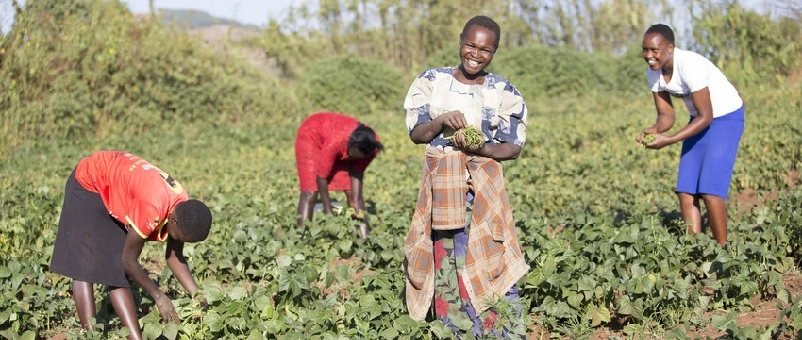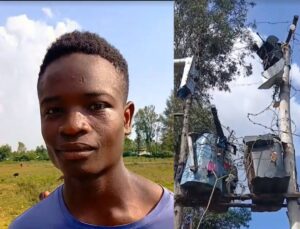Transforming the Environment Through Nexus Project (LISTEN), an innovative initiative dedicated to driving environmental transformation through the nexus approach successfully organized the Intercounty Field Day.
The event took place at Nanyuki Stadium in Laikipia County on May 30, 2023, bringing together over 1,000 farmers and 30 private sector players, among other stakeholders.
The Chief Guest, Laikipia County Deputy Governor Reuben Kamuri Ngatia, emphasized the significance of the Intercounty Field Day and highlighted the county government’s commitment to sustainable development.
His address underscored the importance of public-private partnerships in achieving long-term environmental and economic goals. The event provided farmers, private sector players, and stakeholders a platform to exchange ideas, showcase innovative solutions, and explore collaborative opportunities.
Attendees experienced interactive exhibitions and live demonstrations of cutting-edge farming techniques, conservation practices, and the latest agricultural technologies.
John Macharia, AGRA’s Kenya Country Manager, stated, “In a country where agriculture remains a key driver of economic and social development, climate change projections for East Africa (Kenya in particular) paint a disturbing picture in efforts to achieve food resilience and security.
The LISTEN project strengthens the counties’ resilience to climate change by increasing food, nutrition, and water security in Laikipia, Isiolo and Samburu”. LISTEN Project has steadfastly committed to fostering sustainable and inclusive growth in Laikipia, Isiolo, and Samburu counties.
Through their endeavours, they have facilitated transformative collaborations, knowledge exchange, and capacity-building initiatives, empowering local communities. The Intercounty Field Day is a testament to their dedication to empowering farmers and building environmental resilience against the adverse impacts of climate change.
On his end, Stephen Gichuki, Project Manager of the LISTEN Project, noted that the project focuses on four key outcome areas
- Improved institutional capacities and programming frameworks for inclusive climate resilience at the county level.
- Improved water and livelihood resource management at the landscape level in the Ewaso Nyiro River Basin Ecosystem.
- Increased production and incomes through the adoption and scale‐up of Good Agricultural Practice (GAP), good management, and efficient water practices, technologies and innovations in selected value chains.
- Increase ASALs’ use of knowledge and innovative management practices.
“This event has showcased the power of collaboration and knowledge sharing in transforming our environment and empowering communities,” added Jeremiah Rogito, LISTEN’s Agriculture and Water Nexus specialist. Participants had the opportunity to engage with experts, gain practical knowledge, and learn from successful case studies in sustainable agriculture.
The event also facilitated networking sessions, enabling participants to establish valuable connections and explore potential partnerships with private-sector players operating in the agricultural value chain.
“LISTEN Project is proud to have hosted the Intercounty Field Day, bringing together farmers, private sector players, and esteemed speakers who share a common vision for sustainable development through building resilience to climate change,” said Stephen Gichuki, Project Manager at the LISTEN Project.
The Intercounty Field Day underscored the transformative potential of the nexus approach and the importance of public-private collaborations in driving positive change.
About the LISTEN Project
The LISTEN project seeks to strengthen institutional capacities for climate change adaptation at the county level and increase smallholder farmers’ knowledge and adoption of climate-smart irrigation technologies and practices while applying an Integrated Water Resource Management (IWRM) approach along the Ewaso Nyíro basin. The project adopts a nexus approach to implementation, i.e., recognizing and leveraging ongoing and complementary activities of agencies across and in different sectors, drawing in community support in these initiatives, and carrying out service delivery with support from the private sector, where possible. The project is anchored in county government ownership and aims to realize scale by working at county, landscape, community, and farmer levels.
















